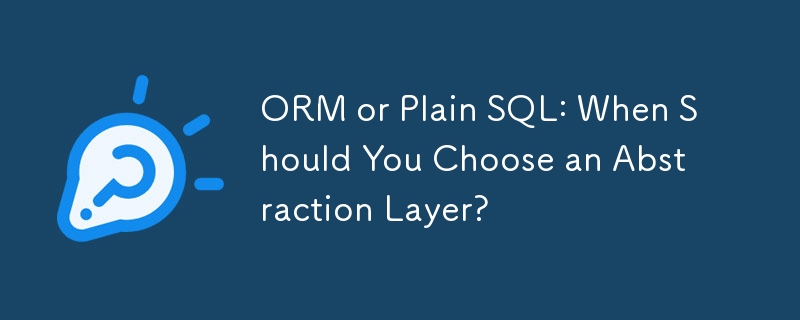

ORM and native SQL: When to choose the database interaction layer
In web application development, database interaction is crucial, and it is often necessary to weigh whether to use object-relational mapping (ORM) or native SQL. ORM provides portability across databases, while native SQL provides direct control for single-database systems.
Considerations for using ORM:
Considerations for using native SQL:
Hybrid method:
You don’t have to use ORM or native SQL exclusively, consider a hybrid approach. For example, ibatis provides a lightweight SQL wrapper that provides some of the benefits of an ORM (e.g., simplified queries) without sacrificing performance. This approach balances portability and performance.
ORM Traps:
Ultimately, the choice between ORM and native SQL depends on the specific needs of the application. For scenarios where portability and rapid development are crucial, an ORM is a suitable choice. However, if performance, control, and simplicity are critical, native SQL is still a viable option, especially in single-database applications.
The above is the detailed content of ORM or Plain SQL: When Should You Choose an Abstraction Layer?. For more information, please follow other related articles on the PHP Chinese website!




